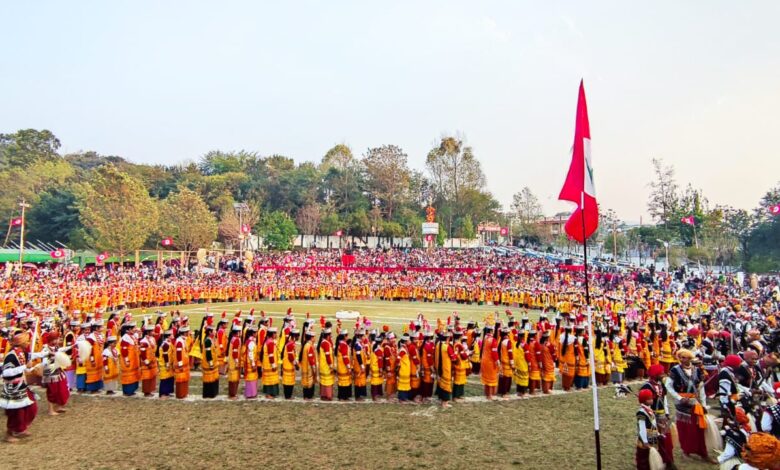Matriliny: A complex tapestry of empowerment & exploitation

 Matriliny in Meghalaya, while granting women inheritance rights, poses significant challenges.
Matriliny in Meghalaya, while granting women inheritance rights, poses significant challenges.
The system’s practice of passing property to the youngest daughter creates economic disparities among siblings, especially in large families with limited resources. Weak legal frameworks around marriage, including the absence of documentation, leave women vulnerable to abandonment and polygamy, with men facing little accountability.
Cultural norms that tolerate multiple marriages exacerbate these issues, often leaving women as sole caregivers for their children with minimal financial or emotional support. Despite perceptions of empowerment, many women struggle with limited education, low wages, and inadequate social safety nets.
These challenges are compounded by political and institutional neglect, highlighting the need for systemic reforms to address the vulnerabilities associated with matriliny.
The situation of single mothers in Meghalaya reflects deeper societal challenges. While no official data captured their exact numbers before 2022, their prevalence is a stark reminder of systemic issues. It is common to encounter tribal women raising children alone, often without the support of their husbands.
The matrilineal system provides a means of sustenance, but the burdens borne by single mothers cannot be ignored.
The phenomenon of single motherhood is often linked to early marriages, which frequently fail to endure. The matrilineal inheritance system contributes to these challenges, as the youngest daughter typically inherits property, leaving other daughters with limited resources.
This situation is further strained in families with many children, especially in cases where resources are scarce. Tribal families in the state generally tend to have more children, unlike families in other parts of the country where planning limits family size.
The ‘Exploratory Study on the Socio-Economic Status and Problems of Single Mothers in Meghalaya’ by the Meghalaya State Commission for Women in collaboration with the Department of Anthropology, North Eastern Hill University and Department of Social Welfare, Martin Luther Christian University, conducted in 2022 highlighted the socioeconomic difficulties faced by single mothers in Meghalaya.
Out of 12 districts surveyed, 3,078 single mothers were identified across seven districts. A significant portion of them were either illiterate or had minimal education. Many were deserted, abandoned, or widowed, and these women bear the responsibility of running their households alone.
Meghalaya is one of the world’s last few matrilineal societies where women have inheritance rights and dominate public spaces. While outsiders get carried away by the narrative of independent women ruling the marketplaces of Shillong and label them as living examples of matriarchy, it is not so simple.
There is another side to the story where women are left to fend for themselves and their children — with little education, poor wages and no proof of marriage — while men have little responsibility towards their families or in bringing up children.
One cultural belief influencing this situation is the perception that men are free to live as they wish, including marrying multiple women. Cases of polygamy are prevalent among tribal communities in Meghalaya, where some women only discover their husbands’ second marriages after being deserted for years. There is often no requirement for legal separation before remarrying, and marriage itself lacks formal documentation in many tribal societies. Local disputes are typically handled by village leaders, but these authorities often face the same issues making resolution difficult.
Statistical data from national surveys reveals that polygamous marriages are more common in Meghalaya than in many other states. Over the years, the prevalence of such marriages has increased. Women often head households, not due to societal empowerment, but because of abandonment or separation by their partners. Rural areas, which account for the majority of households, show a particularly high prevalence of these challenges.
Despite the matrilineal structure, which gives women inheritance rights and prominence in public spaces, many face significant hardships. They often struggle with inadequate education, low-paying jobs, and the absence of legal protection for their marriages. Meanwhile, men face little accountability in supporting their families. While the matrilineal system in the state is often glorified, in reality, it has contributed to the challenges and disadvantages women face today.
The fertility rate in Meghalaya, as per the National Family Health Survey (NFHS), is above the national average, and the use of contraception is notably low. The fertility rate in Meghalaya is 2.9 children per woman, higher than the national average of 2.
Use of contraception among married women was as low as 27.4%, according to NFHS-5. Support systems for single mothers are almost non-existent, with only a small percentage receiving financial assistance from their former partners. Visits from estranged fathers are infrequent, and political attention to the plight of single mothers remains minimal. The lack of comprehensive data further complicates efforts to address these issues effectively.
While the matrilineal system in Meghalaya is often celebrated, its complexities reveal significant challenges for women, particularly single mothers. Addressing these issues requires a more nuanced understanding of cultural practices and a concerted effort to provide better support and resources for those affected.
(Views are personal)





